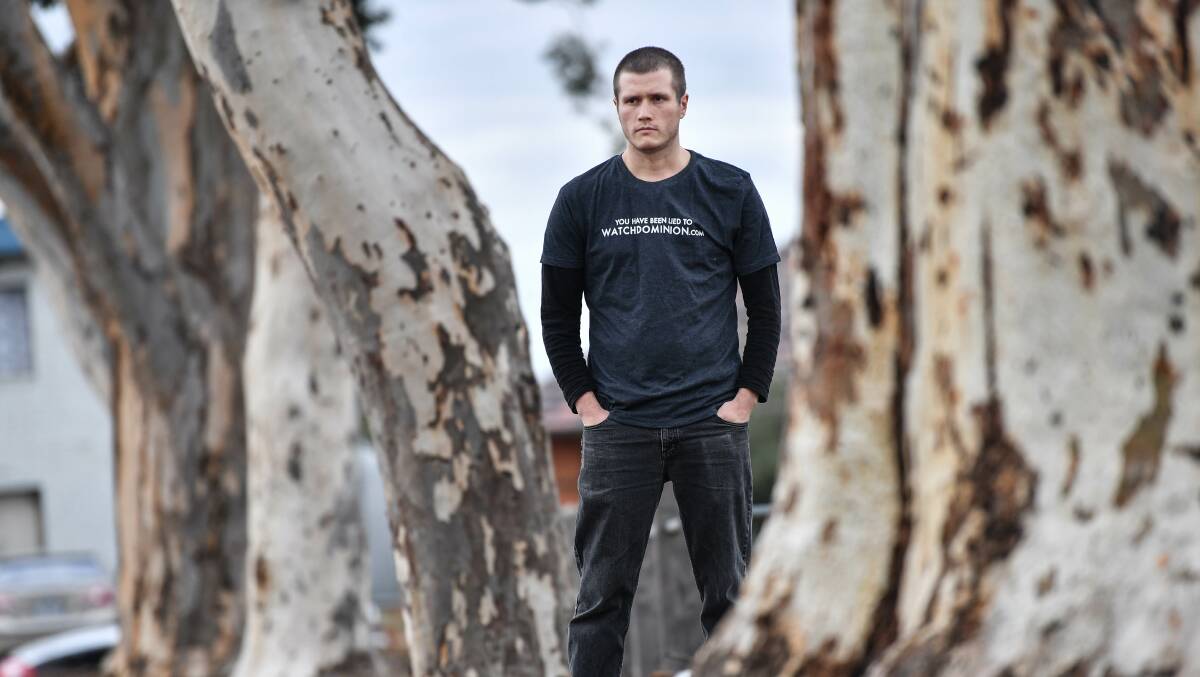
The Law Council says the Morrison government's planned "farm invasion" laws are overkill and could stifle legitimate debate about animal rights and food production.
The Law Council says the laws could limit the work of journalists and scare off whistleblowers, and are "selective" in only focusing on farms, not other food production and transport businesses.
The Coalition has introduced laws that impose up to a year in prison for using a carriage service - the internet - to "incite" trespass on farms. The bill makes it clear that an offence has been committed whether or nor anyone actually trespasses.
The laws are aimed at the Aussie Farms website which maps the country's commercial farms. The government paints animal activists as extremists and Prime Minister Scott Morrison has described them as "unAustralian green criminals".
The Law Council appears before a Senate inquiry into the bill on Monday, alongside farmers groups, a suite of animal activist groups, animal welfare groups, government officials and the police. News Corp and the ABC will also appear.
The Law Council said in a submission that while the bill included protection for journalists and whistleblowers, the definitions were not clear and the protection was limited.
"At a time when Australia is already subject to much international scrutiny regarding the integrity of media freedom within Australia, this bill may again highlight this particular issue," the law council said.
Journalists are exempt if their story is in the public interest and they are working in their professional capacity, but the Law Council said it was not clear who would be captured by the definition, and the bill failed to take account of the number of journalists working freelance on blogs or other formats.
The onus of proof was also on the journalist, which the Law Council said was unnecessary and disproportionate. It should be up to the prosecution to prove that the material was not in the public interest to publish, it said.
The protection for whistleblowers was also unclear and might not apply to employees and contractors who witness animal cruelty and resort to disclosing their concerns via a carriage service.
"An employee may, as a result of this proposed law, be too afraid to make public evidence of the use of poisonous chemicals on fruit produced at an orchard, for fear of prosecution, resulting in damage to the health of those who consume the fruit," the council said.
"Whilst the employee may be covered by whistleblower exceptions, these are limited ... and their availability should not override the ability of a person to avail themselves of an existing right or privilege to legitimately publicise incidents in the public interest."
The Law Council said it should be made clear that it was not an offence to discuss or debate farm practices or call for reform.
It says the states and territories already have laws covering trespass and, arguably, inciting trespass, and the government had not made the case that the new federal offences were necessary.
The duplication of federal and state laws with different penalties, evidence and defences created "great complexity" for courts. The courts were left trying to interpret which law had precedence and whether state law remained valid, judgment made even more difficult when the federal government was attempting to criminalise inciting an offence such as trespass that actually came under state law.
The council also warned that the government could be creating "an entirely new suite of criminal offences".
The laws were unique in that they relied on the use of a carriage service to allow the Commonwealth to criminalise incitement of a state offence (trespass). "The use of the telecommunications power generally to expand the reach of Commonwealth criminal law is a concern," the law council said.
"This potentially foreshadows a precedent where, if the Commonwealth is dissatisfied with the framing or penalty of a particular state or territory offence, it may re-criminalise the incitement of that conduct as long as the jurisdictional element of use of a carriage service is present," it said.
A coalition of media companies including News Corp and the ABC, under the Australia's Right to Know banner, also argues against putting the onus of proof on journalists. Because investigators didn't take possible defences into account, a journalist could be subject to a criminal investigation for a report that was found to be in the public interest, the group said in a submission. The public interest was also not defined in the bill and views could differ about what it meant.
It was extraordinary that someone could be jailed even when a trespass had not occurred and the farmer had not in fact suffered any detriment, they said, also raising concerns about media companies being prosecuted for content on Facebook or in reader comments over which they had no or limited control.


